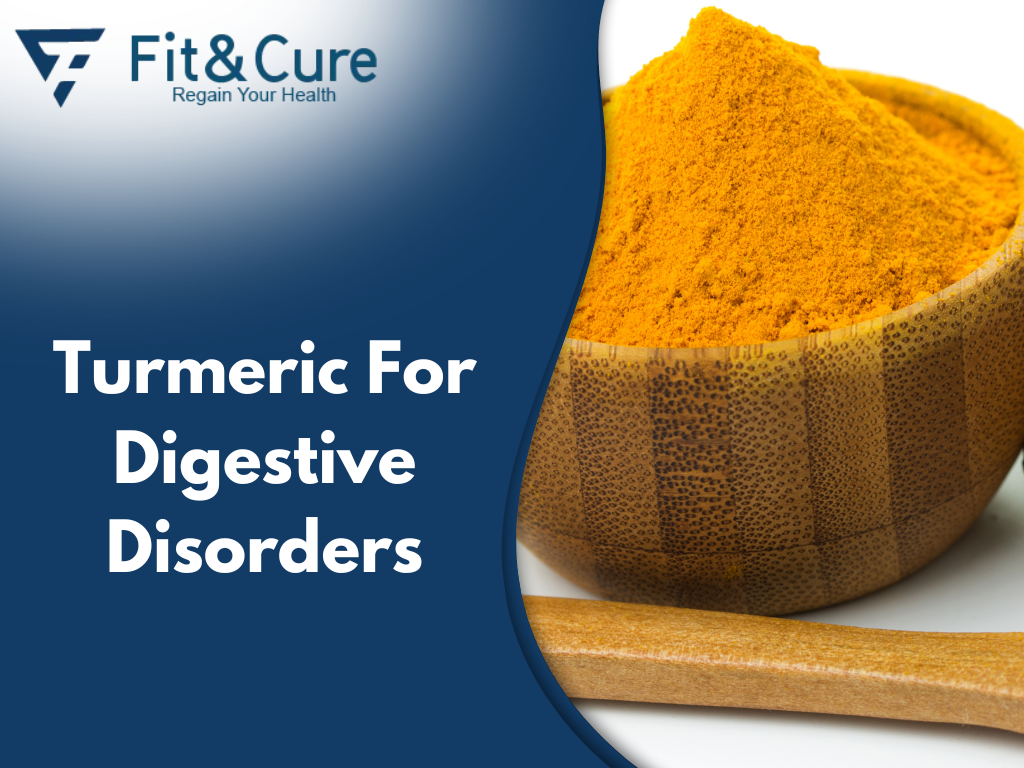Turmeric has been used in both Ayurvedic and Chinese medicine as an anti-inflammatory, to treat digestive and liver problems.
Turmeric has Curcumin (diferuloylmethane) which is the active compound called phytochemical. So, it can used for conditions such as poor digestion, abdominal pain, and distension.
Turmeric is used to treat acid reflux
In 1999, the World Health Organization recommended turmeric for treatment of acid reflux, flatulence, and functional dyspepsia.
Anecdotal evidence suggests that turmeric has bioactive compound known as curcumin, alleviates acid reflux. While there are few clinical trials to prove this claim, there are many benefits that may lead to alleviation of acid reflux due its anti-inflammatory properties.
Used in the treatment of Ulcerative Colitis
A basic research study from India looked at mice with induced colitis and found that curcumin exerts beneficial effects in experimental colitis by mediating the inflammatory processes.
One small 2015 study found that adding curcumin to the regular treatment routine had a positive impact on the symptoms of mild to moderate ulcerative colitis.
A clinical study from the UK involving 207 irritable bowel syndrome patients showed improvement in their symptoms after the researchers had them take turmeric tablets.
Turmeric extract is helpful in improving IBS (Irritable Bowel Syndrome)
Irritable bowel syndrome (IBS) is a highly prevalent disorder of the gut. It is characterized by abdominal discomfort and pain associated with altered bowel habits in the absence of structural abnormalities.
Recently, it has been suggested that turmeric extract or curcumin as a potent antioxidant and natural anti-inflammatory agent may reduce the severity of IBS by relieving the IBS-associated symptoms.
A small 2019 study showed that a supplement containing curcumin, green tea, and selenomethionine was effective at improving subjective satisfaction with bowel habits in 22 people with IBS.
Due to its low bioavailability, poor absorption in the intestine, and rapid elimination, it is suggested that a combination of curcumin with enhancing agents such as other antioxidants or other herbal products may provide additional health benefits.
A 2021 review also found that curcumin could potentially benefit IBS and ulcerative colitis, along with several other gastrointestinal conditions, including peptic ulcer disease and Crohn’s disease.
It improves metabolism
Medicinal turmeric helps in the production of good bacteria & keeps bad bacteria away. It boosts the capacity of colon to absorb valuable nutrients. So, it improves metabolism.
Prevent from Colon Cancer
The Canadian Society of Intestinal Research, the Gastrointestinal Society’s sister charity, provided funding for Dr. Baljinder Salh’s research into the benefits of curcumin in colon cancer. Salh and his Vancouver team contributed to a building body of evidence that this flavourful spice can help prevent cancerous cells from developing in the colon.
It scavenges free radicals
curcumin can scavenge free radicals, and modulate the activity of enzymes involved in oxidative stress, including superoxide dismutase, catalase, and glutathione peroxidase, and inhibit free radical-generating enzymes, especially lipoxygenase and cyclooxygenase.
Also, curcumin suppresses inflammation by downregulation of nuclear factor-kappa B and tumor necrosis factor α, the two significant inflammatory processes mediators.
Toxicological assessments indicated that herbal formula containing curcumin as a significant part was safe and tolerable in adult patients with digestive disorders. Although many human studies confirmed its safety even at high doses of 12 g/day, high doses of herbal compounds in long-term use have been shown to cause digestive problems or other acute toxicities.
In summary, turmeric, with its active compound curcumin, shows promise in treating digestive disorders like acid reflux, ulcerative colitis, and IBS due to its anti-inflammatory and antioxidant properties. While studies suggest benefits, caution is advised with long-term high doses. For personalized advice, consulting the best dietitian in Noida, such as those at FitandCure, is recommended. Their expertise can guide individuals on incorporating turmeric for optimal digestive health and overall well-being.
FAQ’s
Q- Does turmeric help to treat IBS?
Ans- Some studies suggest that curcumin present in turmeric, could potentially help ease symptoms of IBS.
Q- How turmeric helps in intestinal inflammation?
Ans- Turmeric rich in curcumin being an excellent anti-inflammatory reduces intestinal inflammation, and helps to heal leaky gut syndrome.
Q- How turmeric can improve my digestion?
Ans- turmeric has anti-inflammatory, anti-oxidant and anti-microbial activities.
Resources
https://badgut.org/information-centre/health-nutrition/many-benefits-turmeric/
Turmeric for Treatment of Irritable Bowel Syndrome – NCBI
https://www.ncbi.nlm.nih.gov/books/NBK92752/
https://www.medicalnewstoday.com/articles/320643
https://bagdarafarms.com/strong-gut-with-medicinal-turmeric/?amp


